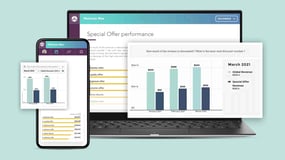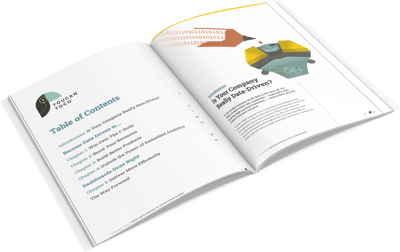Advanced Analytics - what is it?
Advanced Analytics is the use of sophisticated tools and techniques for analyzing data to gain insights or make predictions.
Advanced Analytics tools and techniques are generally more sophisticated than traditional business intelligence solutions. In general, Advanced Analytics is closely related to predictive analytics, Big Data analytics and data mining.
Data mining allows for the collection of high-quality data. The data will then be processed and analyzed using Big Data techniques to find links between them and discover trends. Predictive analysis then allows predictions to be made based on this data.
Advanced analysis also includes the use of modern technologies for data analysis, such as Machine Learning, artificial intelligence or neural networks. Other commonly used techniques include data visualization, semantic analysis, sentiment analysis, simulation, and cluster analysis.

These different methods can be used to predict future events, behaviors or trends. A company that uses them can therefore project itself into the future, for example by calculating the consequences of different possible decisions or by preparing for the future.
Advanced analysis offers several advantages. It speeds up the analysis and exploitation of data and generates in-depth information to make better decisions with speed and accuracy.
It can also reduce the resource requirements for organizing and analyzing data. Analysts can use their time more efficiently and focus on other tasks.
The emergence of many "self-services" platforms is opening up access to the benefits of advanced analytics to all areas of the business. This makes it easier to share data across the organization.
There are multiple use cases and application areas for advanced analytics. In particular, it is used in the marketing field to accurately identify consumer preferences and to predict their evolution.

Learn to create a data-driven company
In the retail sector, these techniques enable better warehouse management. For example, it is possible to analyze sales and predict future demand to refine the ordering process and reduce losses due to excess inventory.
Advanced Analytics are also used in industry sectors for predictive maintenance. By anticipating breakdowns and other problems, significant savings can be achieved.


